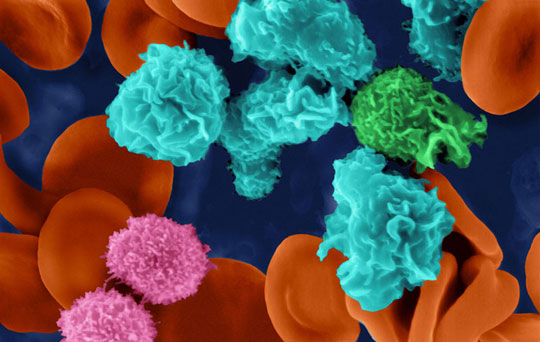
Immune cells in the brain are formed after conception. (Illustration).
Dr Miriam Merad, the study's lead author, said: ' This is really a surprising discovery. We found that progenitor cells developed into microglia within a short time after conception. So microglia is present from the infancy . "
Theoretically we can create microglia from embryonic stem cells to treat brain disease due to microglia defect. This is one of the important reasons for studying embryonic stem cells.
Initially researchers in the precursor cell transplantation in the blood, which is the precursor to all macrophages from newborn mice together. The results show that microglia is made up of pre-embryonic life.
Next, they used a mouse model with a fluorescence biosensor to determine in the infancy when the precursor turns into microglia. As a result, microglia arises about seven days after conception.
Dr. Merad said ' In the future we need to continue to study the development of precursor cells and microglia, determine the role of microglia in brain diseases so that we can introduce new treatments' .
 Green tea cleans teeth better than mouthwash?
Green tea cleans teeth better than mouthwash? Death kiss: This is why you should not let anyone kiss your baby's lips
Death kiss: This is why you should not let anyone kiss your baby's lips What is salmonellosis?
What is salmonellosis? Caution should be exercised when using aloe vera through eating and drinking
Caution should be exercised when using aloe vera through eating and drinking